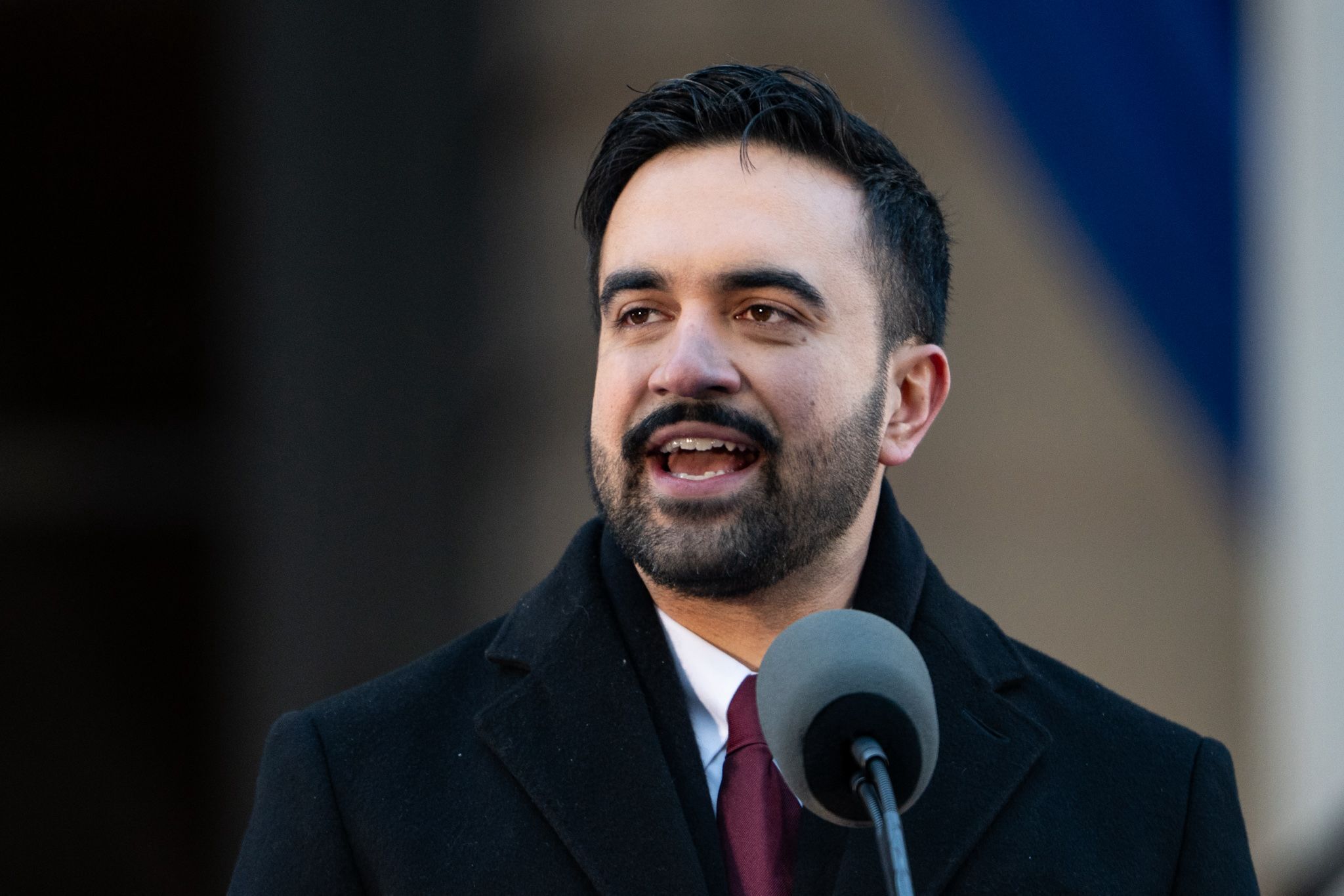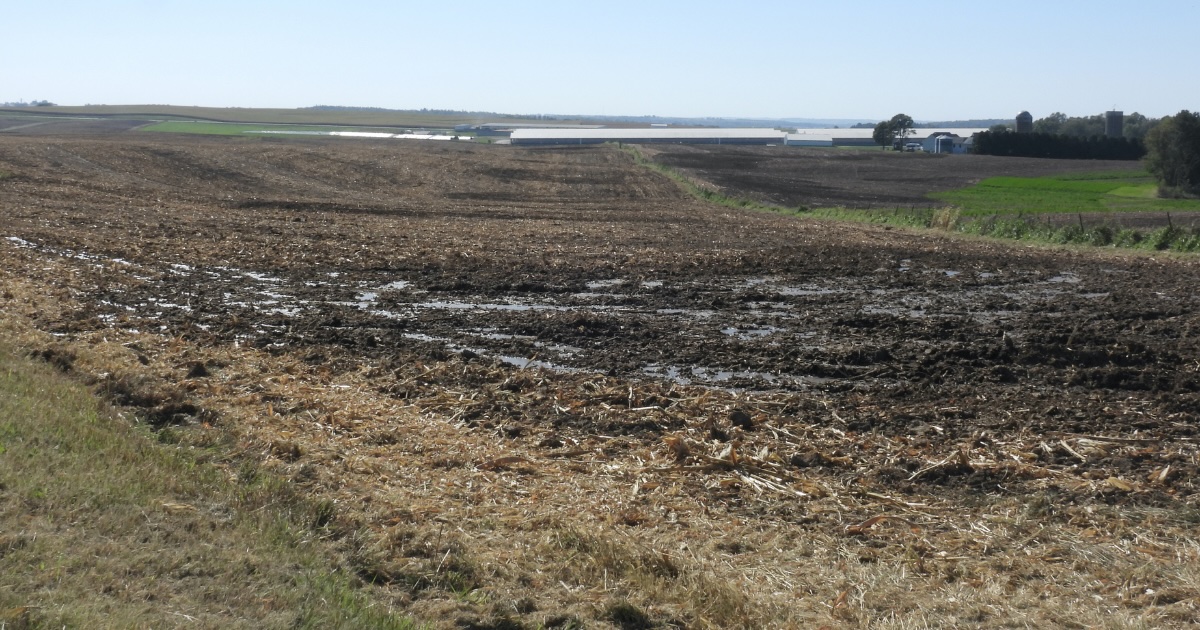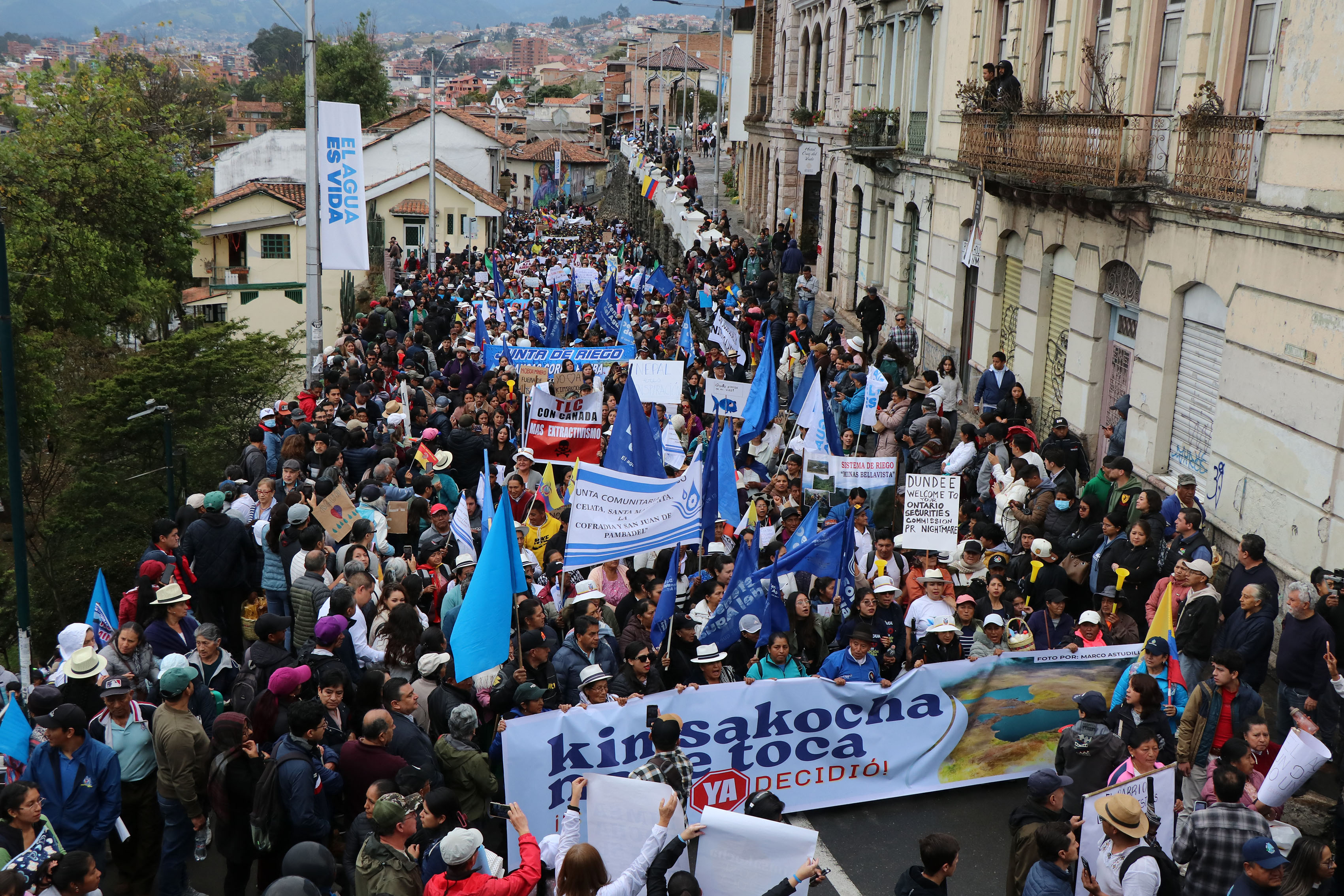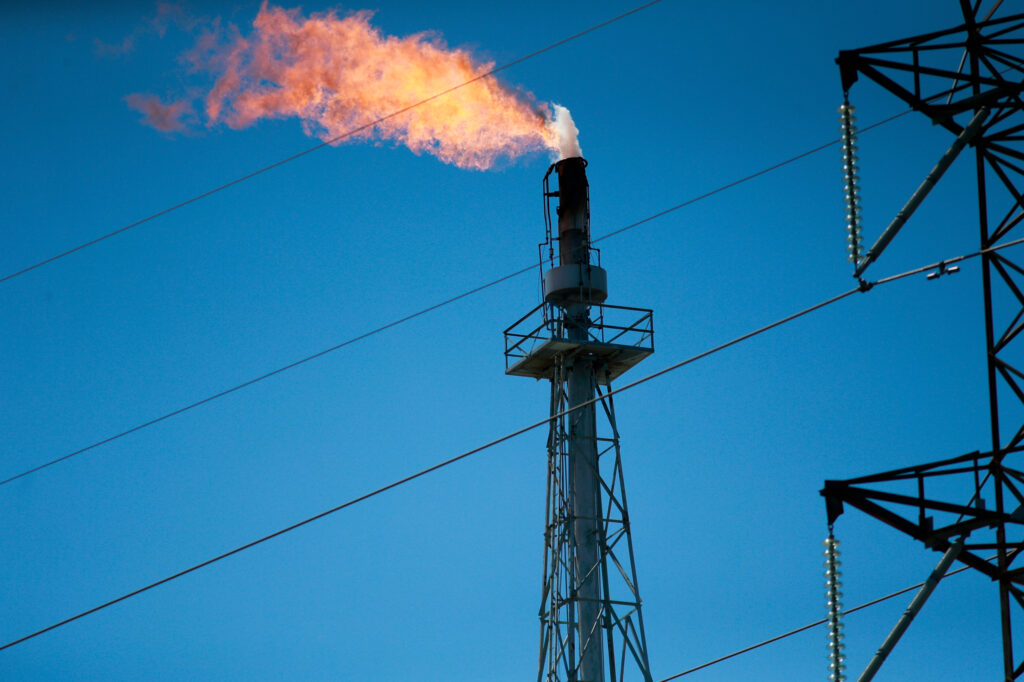LONDON—Moments away from going up against a team of lawyers representing a multinational oil and gas company, Emma Ireland and Charles Philip Laurie stood in a hallway outside the courtroom with their eyes closed.
Ireland, a soft-spoken, 40-year-old mental health worker from Bristol with a pixie cut and purple-rimmed glasses, wore a turquoise cardigan, a dark gray skirt, tights and black combat boots. Her co-defendant Laurie, a 61-year-old retired civil engineer and devout Quaker, wore a plaid flannel shirt, brown cargo pants and a keffiyeh representing his support for Palestine.
It was October 22, the first morning of a two-day hearing in which Ireland and Laurie fought three injunctions sought by Shell to restrict protests at the company’s oil refinery in Essex, its administrative office in London and affiliated gas stations across the U.K.
Ireland and Laurie stood in a circle with a ragtag group of their supporters—mostly members of the direct-action climate group Just Stop Oil, who ranged in age from teenagers to senior citizens—as Ireland led them in a grounding exercise of deep breaths and affirmations of gratitude for water, fire and Mother Earth.
“I am enough,” Ireland said, and the group repeated her words. “I have all the love I need to change the world.”
Ireland and Laurie were named defendants in the third injunction claim—focused on gas stations—because they participated in a protest at a Shell gas station in 2022. Acting as their own legal representation, they argued that the injunction infringes on their rights to public participation in environmental activism under the Aarhus Convention, an international treaty that the U.K. is party to, and that disruptive protest against Shell is warranted given the harm that is done by the company’s continued extraction and sale of planet-warming fossil fuels. Shell’s legal team, led by Myriam Stacey and Joel Semakula, argued that the protests in question are unlawful, potentially unsafe and likely to injure the company’s proprietary rights.
On Dec. 5, Justice Dexter Dias, a High Court judge in the King’s Bench Division, granted all three injunctions to Shell for a term of five years. Breaching an injunction constitutes contempt of court, which can result in significant fines and up to two years of imprisonment.
The gas station injunction bans future protesters from actions that disrupt or interfere with the supply or sale of fuel at the gas stations, including tactics like blockades or equipment damage. Although these actions are already illegal, the injunctions are meant to further deter such protest.
Anti-protest injunctions aimed at environmental protesters have become increasingly common in the U.K. over the past decade. A BBC analysis in July found more than 400 activists named in court orders restricting protests at more than 1,200 locations, including oil terminals and gas stations across the country. Climate and free speech advocates have criticized oil companies’ use of injunctions against protesters, saying they can have a chilling effect on dissent.
“The cumulative result of decisions such as these is to make it easier for fossil fuel companies like Shell to secure far-reaching injunctions against peaceful protesters,” said Charlie Holt, European lead of Global Climate Legal Defense, a group that supports climate activists around the world. “Put in the context of new police powers, draconian new laws and an increasingly punitive approach to sentencing, the U.K. is rapidly positioning itself as a world leader in the repression of climate activism.”
Last week, researchers at the University of Bristol published a report detailing growing criminalization of climate and environmental protest around the world, including anti-protest laws, legal prosecution, excessive policing, threats and intimidation, and killings. These efforts are buoyed by state-led crackdowns on dissent as well as by corporate actors. Growing threats and violence against environmental activists have been well documented in recent years, and in the U.S., anti-protest laws, including increased penalties in some states for protests at fossil fuel infrastructure, have become more ubiquitous since 2017. Experts have raised concerns about a likely shrinking civic space under Trump’s second presidency.
Meanwhile, global action on climate change continues to fall short, wading through slow bureaucracy and hindered by the profit concerns of the fossil fuel industry. Social movements have long used protest as a tactic to compel action when other methods aren’t working, and as suffering from the unchecked climate crisis becomes increasingly acute—with floods, heat waves, storms, wildfires and other extreme weather taking lives, destroying communities and exacerbating global displacement, hunger and conflict—climate activists are increasingly desperate to make their voices heard.
After the U.K. court decision, Laurie reflected that although he was disappointed to see the injunctions granted, he was not surprised. The third injunction, focused on the gas stations, names 14 defendants who protested at Shell locations in 2022, but all three also apply to “persons unknown”—which includes anyone who may breach the terms while the injunction is in effect. Of the named defendants, Laurie and Ireland were the only two who chose to appear in court to challenge the measures. Laurie said he hopes that their experience inspires other activists facing injunctions to take a similar stand.
“We did it because we wanted to be able to tell our truth in court, and we got to do that,” he said. “We might not win, but at least we showed other people that they can do it as well.”
Ireland and Laurie went into court with an understanding that if they were unsuccessful in challenging the injunction, they might have to pay Shell’s legal bills due to English procedural rules that allow a winning party in a lawsuit to recover costs from the loser. That would likely put them in crippling debt. The knowledge weighed on them, but both activists felt that they needed to take the risk in order to speak their minds in court.
This rule makes activists reluctant to challenge injunctions, Holt said.
“Many ‘persons unknown’ injunctions are therefore left undefended, leading to an accumulation of bad case law,” Holt said. “It was only because of the courage of these two activists that [Shell’s] injunction was contested and it reached this point at all.”
On the second day of the hearing, Shell’s lawyers unexpectedly announced that the company would not seek costs from Laurie or Ireland. Shell said that the decision was specific to the circumstances of the hearing, based on the respectful conduct of the two defendants as well as the “substantive new issues of public importance” they raised, including the consideration of the Aarhus Convention in environmental protest injunctions, “which had not previously been considered by any Court to date.”

At that announcement, both Ireland and Laurie burst into tears of relief.
“I had this over me for two-and-a-half years,” Laurie said later, reflecting on the decision. “Thinking you’re going to lose your home is a huge thing.”
Although Shell made it clear that the decision is not a matter of broader company policy, Michael Gerrard, an environmental lawyer and scholar at Columbia University’s Sabin Center for Climate Change Law, sees some value in it. If another company seeking injunctions attempts to secure heavy financial damages, he said, defendants could refer to the Shell case.
“I was happy to see that,” he said after reading the decision. “It’s one thing to prevent people from engaging in illegal activity. It’s another to cripple them financially.”
A “Shrinking Space” for Protest
The injunction decisions come as climate activists in the U.K. are facing long prison sentences and sweeping restrictions on protest, including the Police, Crime, Sentencing and Courts Act of 2022. That law was drafted with assistance from Policy Exchange, a think tank linked to the Atlas Network, an international web of organizations with fossil fuel industry ties and a history of climate denial.
Jan Goodey, an academic and Just Stop Oil activist who was arrested for participating in a protest where he climbed the gantries over the M25 motorway in 2022, was convicted of a new public nuisance offense under the PCSC Act, and served three months of a nine-month jail sentence.
“It just turns out that as the climate becomes increasingly perilous, the sentencing becomes increasingly higher,” Goodey said. “The politics of the whole issue is dirty politics, which is oil subsidies, profits and the rich get richer and the poor get poorer.”
The backlash to activism has been criticized by international human rights advocates, including the United Nations’ special rapporteur on environmental defenders, Michel Forst. After a visit to the U.K., Forst detailed “increasingly severe crackdowns on environmental defenders” and noted specifically that he was “deeply troubled” by use of civil injunctions to ban protests on public roadways and elsewhere.
“The overall law in Britain is very repressive at the moment,” Laurie said. “Protest against Shell is virtually impossible now without incurring very large penalties. … It’s a very difficult landscape we find ourselves in.”


Oscar Berglund, a senior lecturer at the University of Bristol studying climate change activism and civil disobedience, said that injunctions are an example of giving corporations “unfair access to the legal system.”
“It’s a way that corporate actors can directly intervene in the legal process,” said Berglund, an author of the recent report on criminalization of climate activism. “The injunction process gives [companies] disproportionate power to curb protest, so it’s certainly a really worrying aspect of the broader criminalization of protest.”
In an emailed statement, a Shell spokesperson said the injunctions are meant to target unlawful protest only.
“We respect the right of everyone to express their point of view, as long as they do so with their safety and the safety of others in mind,” the statement read. “It is clear that dangerous and unlawful protests remain a continuing and real threat to the safety of our staff, customers, contractors and the protestors themselves. The purpose of our injunctions is not to restrict peaceful protest, but rather to provide a significant deterrent to dangerous and unlawful protest activity which has the potential to cause serious harm.”
Just Stop Oil, which gained international notoriety for actions like throwing soup on the glass cover of a Van Gogh painting or spraying orange powder on Stonehenge, frequently engages in civil disobedience—or strategic law-breaking—but emphasizes that it is committed to principles of nonviolence. The group takes inspiration from past social movements that used civil disobedience to effect change, like the American Freedom Riders or 1990s disability rights activists in the U.K.
During the 2022 protest that Laurie and Ireland attended, at a Shell gas station on a motorway in the village of Cobham, some protesters smashed the screens of two gas pumps but no people were hurt. Ireland and Laurie, who did not smash the pump screens, were arrested at the protest and await trial in 2025.
Gerrard said the result of the injunction decision, given that it applies to already illegal activity, was not surprising.
“It would be difficult for a court to condone illegal acts going forward,” he said.
But many advocates also argue that restrictions aimed at preventing unlawful protest, while legal, can still be repressive, given the longstanding legitimacy of civil disobedience tactics and the potential chilling effect of these measures on a broad range of dissent.
“Ultimately they are shrinking the space for what is acceptable protest,” said Berglund, at the University of Bristol. “Arguably, from a climate perspective, protest against oil companies, even if it’s illegal, is legitimate because they are destroying the planet. The liberal democracy must accept levels of civil disobedience. … Cracking down on that is in the interest of the oil companies—it’s not in the interest of us living on this planet.”
Laurie thinks the injunctions may be a sign that oil and gas companies are feeling the pressure that activists are putting on them.
“Things are not easy at the moment … in the climate movement, but that’s OK,” he said. “If it was easy, we wouldn’t be changing anything.”
Communicating the Crisis
Before 2022, Ireland had never participated in any kind of protest, let alone engaged in civil disobedience. When she went to her first nonviolent direct action training with Just Stop Oil that year, she was apprehensive, but her fears were quickly assuaged.
“I [was] really scared about who activists would be and what they would be like, and they were just like me,” Ireland. “Everything in that training felt like to me it was coming from a space of love and from a space of finding peaceful groundedness from that space to act, and I felt really assured that this was in line with my values.”
In her submission to the court, Ireland said that she believed if Shell truly understood the damage its business practices were doing—by continuing to extract and profit off fossil fuels—it would “consent” to being protested.
“I can only imagine that Shell doesn’t understand the information about climate change,” Ireland said in court.
This story is funded by readers like you.
Our nonprofit newsroom provides award-winning climate coverage free of charge and advertising. We rely on donations from readers like you to keep going. Please donate now to support our work.
Donate Now
Shell, like its peers in the oil and gas industry, has known about fossil fuels’ impact on climate change since at least the 1970s, but continued to promote their use. This year, Shell weakened its own carbon-emission reduction targets.
Laurie joined Extinction Rebellion about 10 years ago, and started taking action with Just Stop Oil in 2022. In his submission to the court, he said that he is motivated to action by his Quaker faith, and argued that Shell is knowingly prioritizing profits over the wellbeing of people and planet.
“Generally, if they think taking action to reduce their impact on climate change will undermine their profits, they prefer to continue with business as usual and, where necessary, greenwash past any issues,” he said. “This is why it is important to me to protest.”
Rising Repression Meets Grassroots Resistance
In an environment that is increasingly intolerant to protest activism, British climate activists—including those involved with Just Stop Oil—are adding advocacy to protect protest rights to their existing climate-focused demands.
On the morning of Nov. 1, several members of Just Stop Oil dressed a statue of Indian freedom fighter Mahatma Gandhi in a shawl of the group’s signature orange, and poured a bag of sugar—representing salt, which they decided not to use for fear of damaging the statue or surrounding plants—on the statue. The goal: to evoke Gandhi’s famous salt march in an attempt to highlight the hypocrisy of celebrating civil disobedience in the past and not in the present.
“The British state has a kind of double thing going on right now, where they can acknowledge the climate crisis and yet they won’t stop burning oil and gas,” said Just Stop Oil activist Casper Horton-Kitchlew after pouring the salt substitute on the statue. “The same is true of venerating people like Gandhi behind me, while imprisoning people taking nonviolent action in the style of Gandhi.”
On Nov. 1, activists with Just Stop Oil poured sugar, representing salt, on a statue of Mahatma Gandhi in an attempt to illustrate the hypocrisy of Britain celebrating civil disobedience in the past while targeting it in the present. Credit: Keerti Gopal/Inside Climate News
The “Free Political Prisoners” campaign—led by the group Defend Our Juries—has gathered over 60,000 signatures to petition the U.K.’s attorney general to release activists who were jailed for “telling the truth and acting in resistance to continued extraction and burning of oil, gas, and coal.” The group is also advocating for the freedom of pro-Palestine activists jailed for civil disobedience, drawing connections between the crackdown on both movements.
In May, Friends of the Earth UK—an environmental organization focused on grassroots campaigns and legal action—filed an application with the European Court of Human Rights to challenge the use of anti-protest injunctions in the U.K., claiming that these injunctions violate national and international human rights obligations and are part of a wider landscape of increased criminalization of protest.
At the end of January, the court of appeals at the Royal Courts of Justice in London will conduct a mass hearing on the sentences of 16 individuals who are currently serving a combined 41 years in prison for nonviolent civil disobedience actions with Just Stop Oil.
The group includes the two Van Gogh soup-throwers, who received 20-month and two-year sentences respectively, and the “Whole Truth Five,” a group of activists who participated in a Zoom call planning the M25 motorway protest in 2022 and each received four- or five-year sentences.
Activists hope that efforts to challenge laws and decisions they see as repressive will combat the current trajectory toward dwindling protest freedoms. Reflecting on the injunctions, Laurie said he hopes his and Ireland’s choice sparks similar resistance from others.
“Hopefully it’s given people an example of how you can challenge these things,” he said. “And little by little, we will get these repressive laws retreating backwards.”
About This Story
Perhaps you noticed: This story, like all the news we publish, is free to read. That’s because Inside Climate News is a 501c3 nonprofit organization. We do not charge a subscription fee, lock our news behind a paywall, or clutter our website with ads. We make our news on climate and the environment freely available to you and anyone who wants it.
That’s not all. We also share our news for free with scores of other media organizations around the country. Many of them can’t afford to do environmental journalism of their own. We’ve built bureaus from coast to coast to report local stories, collaborate with local newsrooms and co-publish articles so that this vital work is shared as widely as possible.
Two of us launched ICN in 2007. Six years later we earned a Pulitzer Prize for National Reporting, and now we run the oldest and largest dedicated climate newsroom in the nation. We tell the story in all its complexity. We hold polluters accountable. We expose environmental injustice. We debunk misinformation. We scrutinize solutions and inspire action.
Donations from readers like you fund every aspect of what we do. If you don’t already, will you support our ongoing work, our reporting on the biggest crisis facing our planet, and help us reach even more readers in more places?
Please take a moment to make a tax-deductible donation. Every one of them makes a difference.
Thank you,

















